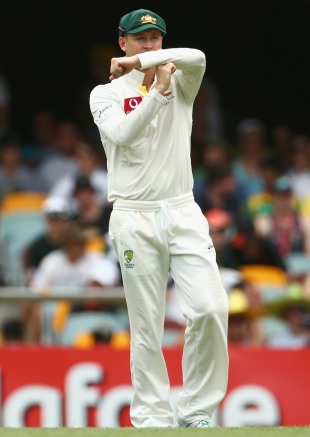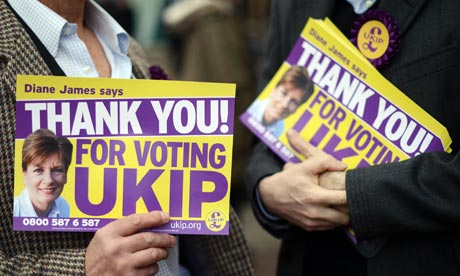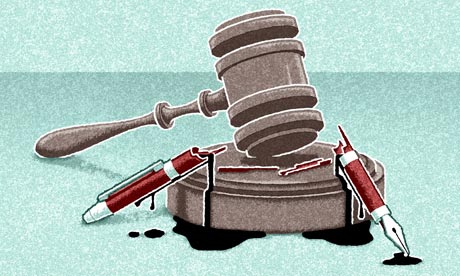| 
| The stakes might be higher these days, but the DRS has struck a blow for honesty © Getty Images |
| Enlarge
|
|
|
Technology or human eyesight? Helmets or bare bonces? Covered or uncovered pitches? Back-foot no-ball law or front? Arlott or Bumble? Does any breed of sporting spectator spend quite so much time as we cricket folk when it comes to debating the merits of the way we were and the way we are? Granted, our baseball and boxing counterparts in particular might scoff at such a suggestion, but they haven't seen their game repackaged as three distinct products.
"Before the Fall? Reflections on cricket in England during the 1950s" is that sagacious social historian David Kynaston's contribution to an annual lecture series at Lord's. A prolific author and academic whose books range from Austerity Britain to W.G.'s Birthday Party, Kynaston uses ten criteria to compare past with present: aesthetic, meritocratic, competitive, craft, excitement, personalities, sportsmanship, walking, crowd behaviour, "mattering", and coverage. Overall, he concludes, "it comes out pretty even".
Loath as I am to take issue with such an esteemed chronicler - and bearing in mind that I had yet to celebrate my third birthday when the 1950s ended - this strikes me as a perfect case of nostalgia overshadowing, if not fact, then assuredly common sense.
Given that we are six weeks away from the 50th anniversary of the most far-reaching of cricket's innovations,
the limited-overs game (90 years, it should be noted, after the
first knockout cup event was abandoned after a solitary match), now seems an apt moment to stand back and reflect on how far we have come and whether, on balance, we have advanced. Most of Kynaston's categories will do nicely, although it feels reasonable to merge walking and sportsmanship (is the former not an intrinsic, if extreme, aspect of the latter?).
Before we begin, let's reel back to a revealing Daily Express survey from that summer of '63: the "Better Cricket Competition". Readers were invited to make five suggestions to improve the County Championship, then the planet's lone competition for full-time pros. The judges - Alec Bedser, Doug Insole and Norman Preston, editor of Wisden - assessed 2000-plus entries, from whence came sundry proposals: overseas players, Sunday play, promotion and relegation, over-restricted first innings, more overs per hour, 15-pace run-ups, rewards for faster scoring, leg-before decisions to dissuade pad-play, and eight- or even ten-ball overs.
The more sensible of these would soon be woven into the first-class fabric, though it is intriguing to note that the judges were unanimous in insisting that the most pressing need was the elimination of time-wasting. In this respect, at least, it seems fair to say that cricket in 2013 lags a vast way behind 1963, though whether this matters is another kettle of cod entirely. It certainly didn't seem terribly important to those who completed the recent public surveys conducted by the ECB and Cricket Australia.
And so to the Kynaston Test. Not unnaturally, some of his sub-divisions permit more objective analysis than others. So, for all that he rightly deems it to be "somewhere near the core pleasure", let's dispense with the aesthetic, the "sensory aspect". The way he sees it, much has been lost through the arrival of "helmets, garish-coloured clothing, umpires no longer in white coats, sponsors' markings on the playing arena" and the "continual noise and exaggerated celebrations" of the players; such preoccupations will strike younger generations as profoundly old hat, not to say downright petty and daft.
Meritocratic
Fifty Aprils ago marked the start of the first English season to be unencumbered by the distinction between shamateurs and professionals: all hail the new meritocracy. Now, thanks to the multiplicity of formats, the ultimate meritocracy is with us: not only can even an Afghan earn a penny or two, you can have a disobedient body, like Shaun Tait does, and still put in a fruitful day's work by bowling four overs. Today: 2pts
Competitive
In the 1960s the average Test total was 323; over the past ten years it has been 350. Yet before we get too carried away with this apparent widening of the gap between bat and ball, the rise in scoring rates (from 2.49 runs per over to 3.27) has compensated handsomely for the reduction in the number of overs per day, the upshot being that the ratio of conclusive results has soared from to 53% to 74%. Throw in the fact that standards are far more uniform - while only England, Australia and West Indies were regular winners in the first period, this year alone has seen New Zealand take a one-day rubber against South Africa and force England to follow on, India all but reverse 2011-12's 4-0 loss to Australia, and Bangladesh trade 600s with Sri Lanka - and it's another no-contest. Today: 2pts
Craft
Uncovered pitches might have asked more of batsmen (and commensurately less of bowlers) but immeasurably more is demanded of today's practitioner. Who knows whether undimmable titans such as WG, Bradman or SF Barnes would have been so adaptable, but there is no question that Hashim Amla, Marlon Samuels and Graeme Swann are as effective over 20 overs and 50 overs as over five days. 1pt apiece
Excitement
Two words should suffice: "Virender" and "Sehwag". Or "Kevin" and "Pietersen". Or "De" and "Villiers". Or, if we're being thoroughly modern, "Shikhar" and "Dhawan". Or, if we're being meritocratic, "Lasith" and "Malinga" or "Saeed" and "Ajmal". Put it another way: when those of us who can remember that far back try to recall feeling excited while watching the game half a century ago, the options are generally confined to "Garry" and "Sobers". It helps, of course, that we can now trust our own eyes rather than parrot the word of others. Today: 2pts
| | | | |
| |
| Does cricket matter more than it did? In numerical terms, given growth in population, communication technology, access to games and ICC membership and funding, of course it does. But is it healthy for an essentially trivial pursuit to matter more? |
| |
| | |
|
Personalities
Comparing characters from different eras is even more ludicrous than comparing Jonathan Trott and his distant ancestor Albert (though we can at least claim with some confidence that Albert, the only batsman to clear the Lord's pavilion with a single blow, was the more aggressive). Again, greater visibility predisposes us to favour the likes of Shane Warne, but this is counterbalanced by largely unpublicised stories from an era when sportsfolk were less closely monitored and hence able to get away with more.
Hugh "Toey" Tayfield is justly celebrated as the greatest of South African spinners, but it was a complete revelation to me to learn, this very week, not only that he was a rampant womaniser who died penniless and largely forgotten in a hospice, but that during the 1960 Old Trafford Test he had been due to appear in court for allegedly failing to repay a £230 loan ("He was a slow bowler and even a slower payer" quipped the prosecution lawyer). We know Sobers and Ted Dexter would have been "personalities" in any era, but given the greater rewards for notoriety today, Tayfield might have met a very different end. 1pt apiece
Sportsmanship
You could be forgiven, here, for concluding that higher stakes and more frequent fixtures have left today lagging miles behind yesterday, but is that truly the case? "Long after the unenterprising cricket of this Test is forgotten, people will talk of two incidents which brought to a head the question of whether batsmen should 'walk'." So attested Basil Easterbrook in Wisden of the 1965 Newlands Test, referring to Eddie Barlow's decision to ignore two appeals for catches (both rejected) and Ken Barrington's self-ordered exit following a thin nick that eluded detection - arguably the least profitable act of vengeance in the game's history. On the other hand, the capacity of the DRS to expose the truth economists has sired, if not a revival of this most honest (if class-ist) of sporting customs, then certainly a few more incidences than I can recollect witnessing in previous decades. 1pt apiece
Crowd behaviour
Of the 11 riotous contests Ray Robinson analysed in The Wildest Tests, one was played in 1933, the others in the first quarter-century after the Second World War. Had he completed the book in 2002 rather than 1972, he would not have had many to add. Sure, there may be less inclination to applaud the opposition, but add comfier seats, more efficient policing of drunkenness and better protection from the elements to the joie de vivre of the Barmy and Swami armies, and there seems little reason not to believe things have improved.Today: 2pts
Mattering
Much the trickiest category. Does cricket matter more than it did? In numerical terms, given growth in population, communication technology, access to games and ICC membership and funding, of course it does. Kynaston disagrees, citing the rise in matches, freedom of player movement and alternative leisure activities alongside a decline in the ritual nature of the fixture list and a tighter focus on city-centre venues. But is it healthy for an essentially trivial pursuit to matter more? How often in days of yore did a bad result convince Indians or Sri Lankans to kill themselves? Yesterday: 2pts
Coverage
There is, of course, no comparison here whatsoever, whether in depth or breadth or even - because we see and know and understand more - quality (literary worth, again, is strictly a matter of taste). At the risk of sounding as disinterested as a mongoose pronouncing judgement on a drunk and disorderly cobra, the range and geographical sources of the voices on this site surely supply incontrovertible proof that we've never had it so good. Hell, if the residents of the Tower of Babel had co-existed this peacefully, we'd all be speaking Hebrew now. Today: 2pts
Final score: Today 13, Yesterday 5
Let's face it: nostalgia simply ain't what it used to be.








